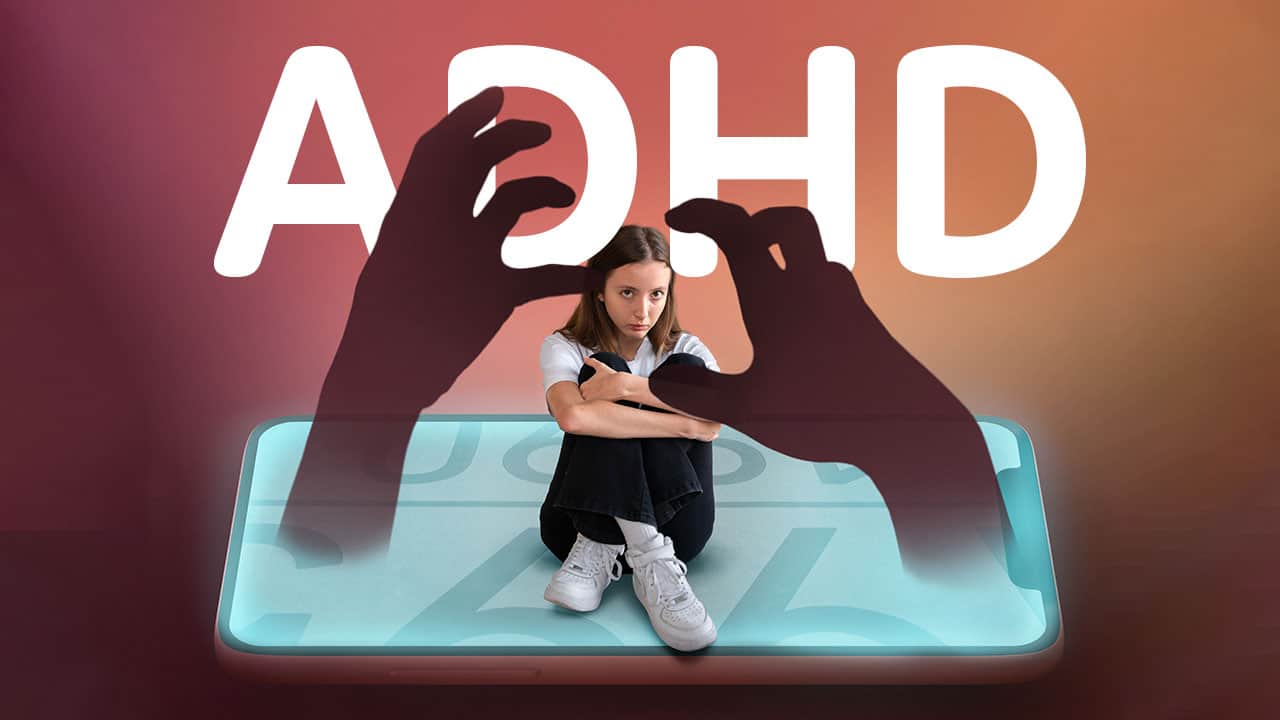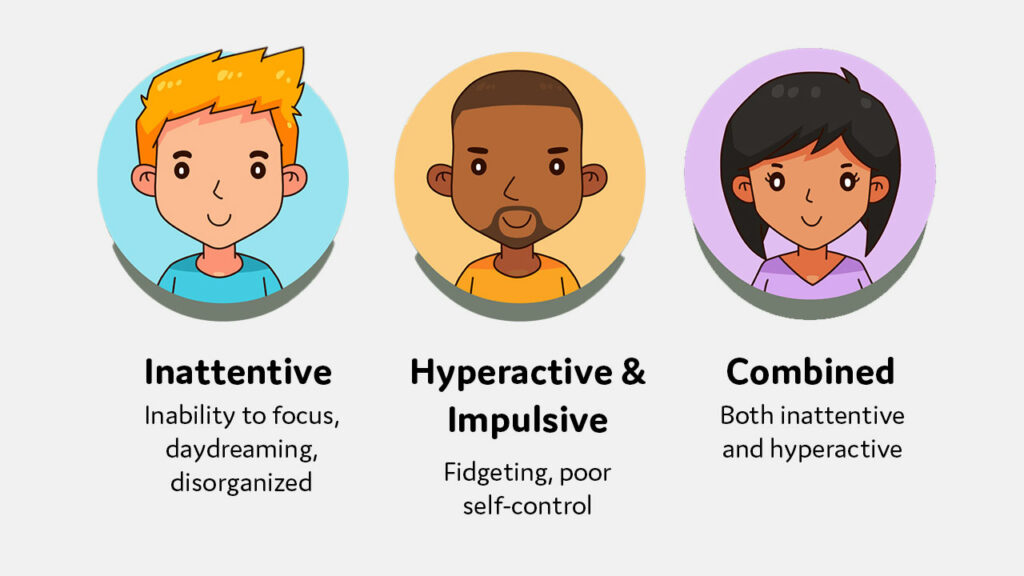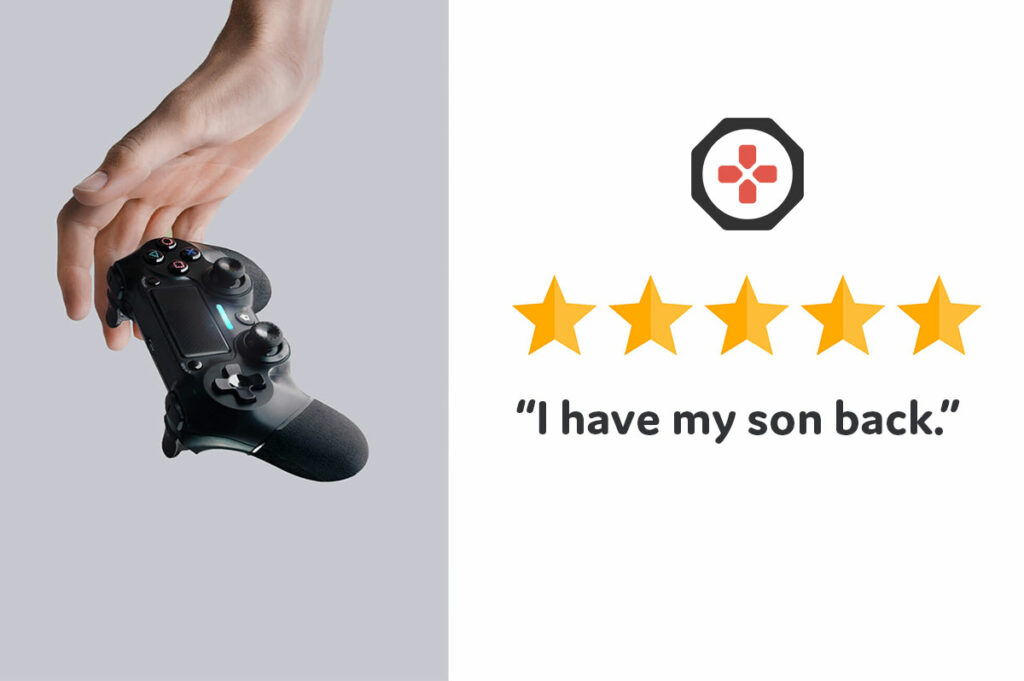
ADHD and Internet Addiction – What’s The Cause?
The internet touches all areas of our lives. It entertains, educates, and connects us in ways that were unimaginable even a decade ago. For many people, it’s a force for good, providing more opportunities than ever before.
However, for others the internet can be as addictive as drugs, alcohol, and gambling, and people with ADHD are even more susceptible. This article looks at why ADHD is a risk factor for internet addiction, and shares advice on how to create boundaries around technology to stay healthy and productive.
What is internet addiction?

Internet addiction is a term that describes the uncontrollable urge to go online despite negative repercussions like disrupted sleep, strained relationships, missed deadlines, physical and mental health issues, and financial problems.
Typical symptoms of internet addiction include:
- Constantly wanting to be online – some people are addicted to one aspect of the internet – gaming, shopping, porn, gambling, social media – while others switch between different apps and websites
- Needing to use the internet for increasing amounts of time to find the same rush of pleasure
- Losing track of time while scrolling – this is known as ‘time blindness’
- Using the internet to escape from problems
- Experiencing withdrawal symptoms if online access is restricted
- Feeling restless and irritable when attempting to limit tech use
- Losing interest in everything else – school, work, friends, family, hobbies, etc
- Hiding the amount of time spent online and lying to others about it
So, can ADHD cause internet addiction? Let’s look at Timmy’s story.
Timmy’s story

When Timmy was young, he was an active kid who couldn’t sit still for long and often got distracted. His teachers noticed this and informed his parents. Soon after, Timmy was diagnosed with ADHD. “It’s not a problem, he’ll soon grow out of it,” they thought.
When Timmy entered adulthood, although he no longer had the common ADHD symptom in children – hyperactivity – he was still unable to concentrate on university work without distracting himself by scrolling through TikTok. And he often bought video games impulsively when he saw ads on steam sales, even though that money was meant for his education.
Timmy didn’t think he had ADHD anymore, but believed he’d picked up bad habits around using the internet and technology for long periods of time. In reality, Timmy suffered from ADHD and his addiction to the internet made his symptoms worse.
The truth is, Timmy is not alone and millions of people are struggling with ADHD and internet addiction. So, if you’re wondering, “Is screen addiction a symptom of ADHD?” then read on.
Why people with ADHD are more vulnerable to internet addiction
Internet addiction is positively associated with ADHD among adolescents and young adults, according to a 2017 systematic review on the link between ADHD and internet addiction 1 1. https://pubmed.ncbi.nlm.nih.gov/28724403/ × . This isn’t surprising if we consider the main symptoms of ADHD – impulsiveness, hyperactivity, and the inability to focus – because these behaviors make people with the condition more vulnerable to digital distraction.
Certain aspects of the internet such as video games, social media, online shopping, messaging, and endless sources of entertainment can make ADHD symptoms worse.
If we take gaming as an example, video games are designed to provide hyper-stimulation and goal setting. Players need to defeat the dragon, win the weapon, get to the next level, complete the mission, etc. People with ADHD often struggle to remain focused, but gaming is a fun and exciting experience that appears to hold their attention. But since they’re so stimulated all the time and jump from one game to another at the first sign of boredom, this also decreases their ability to pay attention properly. There are also lots of deceptively designed microtransactions that prey on their impulsivity and fear of missing out. So, gaming can worsen these ADHD symptoms (distractibility and impulsiveness). In extreme cases, an individual with ADHD can develop a video game addiction.
Social media is another potentially risky activity for people with ADHD who often struggle in social situations. It can be a relief to have somewhere to escape from feelings of frustration, loneliness, and rejection, which doesn’t require any mental energy. Social media preys on impulsivity, inability to focus, and boredom and promises a ‘cure’ for all these things. So someone with ADHD may see a TikTok notification and feel compelled to open up TikTok – that’s their impulsivity being manipulated. Next, they watch a few TikToks and keep mindlessly scrolling – that’s their inability to focus and time blindness being exploited. To understand why apps like TikTok are so bad for people with ADHD, discover how TikTok affects the brain.
Online shopping is another way that people with ADHD can become addicted to the internet. ADHD brain crave dopamine and impulse buying produces an intense feeling of pleasure and reward – known as a ‘dopamine rush’ – which can be irresistible. Having 24/7 access to spending opportunities can be problematic for people with ADHD who struggle with impulsive behaviors. Not only can they become addicted to online shopping, over time they can spiral into debt as constant spending outstrips their income.
These are just a few examples of how those with ADHD can be more susceptible to the addictive nature of internet, and why it may be necessary to set strong boundaries around technology.
How to deal with ADHD and technology addiction

As having ADHD makes people more vulnerable to internet addiction, it’s important to create some boundaries to stay healthy and productive. These boundaries will be different for everyone, but here are some tried and tested tips on how to deal with ADHD in a tech-focused world. (They are directed at the person with internet addiction, so if you’re a concerned loved one, please share the advice with them. You may also find this ADHD guide for parents a useful read.)
Consider whether the internet helps or hinders you
Do your online activities improve your life or have a negative impact? Once you’ve come up with the answer – which is probably that much of what you do on the internet isn’t worth it – you can start limiting your screen time. So, what is the best lifestyle for people with ADHD? For most people with ADHD, quitting entirely is unrealistic because we live in a digital world. Even if you avoid it in your leisure time, your school or job will require you to use the internet.
Devise ways to limit your usage
Working out how to effectively moderate your internet and tech use is very individual because everyone has their own go-to apps and websites. But here are some general ideas that you may find helpful:
Avoid short-form content
Try to avoid short-form content, especially when you’re bored, because it will train your mind to be more distracted. Short-form content can be text based – like blogs, news items, or social media posts – or video content on YouTube, TikTok, Facebook Reels, etc.
Use newsfeed blockers
Having a newsfeed that’s constantly flashing up the latest news and updates can be an irresistible pull for anyone struggling to limit their internet use. Clicking onto any of the stories can be a big time waster when you’re trying to complete a school assignment or work-related task. Try using a newsfeed blocker to avoid unnecessary distractions.
Be more intentional
Think about how you can use the internet more intentionally and break free from mindlessly scrolling. Work out ways to create friction between you and whatever you do online. This could involve setting time limiters on your phone apps or even removing apps completely so you need to log in each time. That way you can be less impulsive, and it will take more effort for you to be distracted. You can also be intentional by choosing the best games to play if you have ADHD.
Schedule your time
Another way to avoid automatically reaching for the internet is to schedule your free time using Google Calendar. A common symptom of ADHD is impulsivity, so planning the day in advance can help you manage this behavior. For example, if you take medication for ADHD, maximize your productivity during the hours when your medication is most active. If you aren’t medicated, you should also identify what times of the day you have the best focus and be diligent about using that time for productive work.
Consider quitting certain activities
As mentioned above, it’s impossible for most people to stop using the internet completely because it’s difficult to function without it. However, certain online activities are a non-essential part of life such as shopping (which can be done in person), news updates (which can be consumed in a newspaper or on the radio), and gaming (which can be replaced with other hobbies and interests). Delete these apps and websites completely, or get rid of your gaming console to avoid temptation.
Seek support from others
Having read the above suggestions, you may have good intentions but it can be difficult to limit your internet activities alone. That’s why it can be helpful to seek accountability and support from others: friends and family, professionals, or people with ADHD who are facing the same struggles. Online forums are a good place to connect with the latter. The Game Quitters Discord platform has a mental health channel where you can post questions and receive support. Be sure to turn off your notifications on Discord unless absolutely necessary so they don’t distract you further.
Need help with ADHD and internet addiction?

If you’ve read this article and are wondering, “Do I have ADHD or am I just addicted to my phone?” you should seek professional help to find out if you have the condition. Then, you can establish how best to manage it – medication, psychological support, or both.
Do you need our expertise to manage internet addition and/or video game addiction? If so, check out our specialist coaching programs for gamers and families. Then get in touch to find out how we help you regain control of your life.
